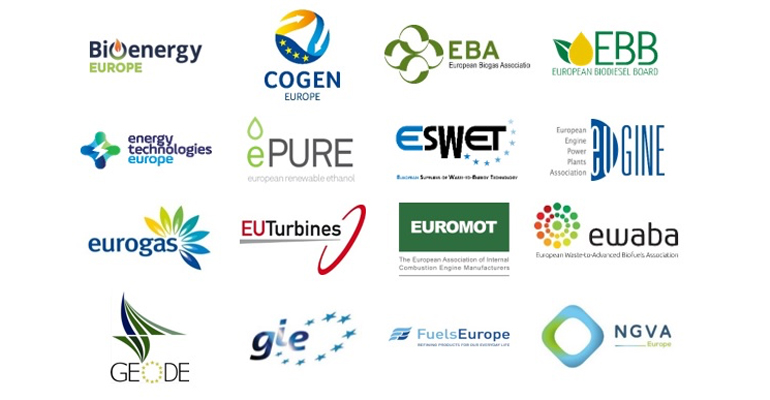As the public consultation on the first two sets of criteria for determining which economic activities can qualify as environmentally sustainable under the EU's Taxonomy soon draws to a close, a group of sixteen European trade associations representing sectors of "major importance for European economic development and wealth" has raised "strong concerns" over the European Commission’s draft Taxonomy Delegated Regulation.
Var vänlig ladda om sidan
Vill du läsa hela artikeln?
- Six editions per year
- Full access to all digital content
- The E-magazine Bioenergy international
- And more ...

The EU’s Taxonomy Regulation, which entered into force on July 12, 2020, aims to help create the world’s first-ever “green list” – a classification system for sustainable economic activities – that will create a common language that investors and businesses can use when investing in projects and economic activities that have a substantial positive impact on the climate and the environment.
As part of the Taxonomy Regulation, the Commission was tasked with coming forward with technical screening criteria, through ‘delegated acts’, to develop the taxonomy further.
The first two sets of criteria concern those activities that substantially contribute to climate change mitigation or climate change adaptation and were published on November 20, 2020, in a draft delegated act, which is open for feedback until December 18, 2020.
Responding to the draft Taxonomy Delegated Regulation, a group of sixteen trade associations has voiced concerns.
We, the signatories of this statement, represent sectors of major importance for European economic development and wealth. We make the move to a competitive, climate-neutral economy in Europe possible and support an EU taxonomy that helps accelerate investments in sustainable solutions. We are strongly concerned about the European Commission’s draft Taxonomy Delegated Regulation proposal, which unless changed, will prevent investors from making fully informed decisions on their investments, undermine affordable financing and jeopardize energy supply security at an acceptable cost, which is key to maintain jobs in Europe and avoid carbon leakage, the signatories stated.
Specifically, the signatories – Bioenergy Europe, European Association for the Promotion of Cogeneration (COGEN Europe), European Biogas Association (EBA), European Biodiesel Board (EBB), Energy Technologies Europe, European Renewable Ethanol Association (ePURE), European Suppliers of Waste-to-Energy Technology (ESWET), European Engine Power Plants Association (EU GINE), Eurogas, European Association of Gas and Steam Turbines (EUTurbines), The European Association of Internal Combustion Engine Manufacturers (Euromot), European Waste to Advanced Biofuels Association (EWABA), European Association of Independent Gas and Electricity Distributors (GEODE), Gas Infrastructure Europe (GIE), European Petroleum Refiners Association (FuelsEurope), and Natural and bio Gas Vehicle Association (NGVA Europe) – urge the Commission to better address the following principles in its proposal:
1. The future Taxonomy should help implement adopted EU climate and energy legislation
A predictable policy framework is key to secure a successful economic and industrial transition ensuring long-term sustainability. Businesses, governments, and financial market participants must not face different targets, standards, or thresholds that will disrupt markets, distort competition, and result in burdensome and costly implementation.
Coherence should also be ensured with existing investment classifications, for example, the European Investment Bank’s (EIB’s) Energy Lending Policy. The Commission proposal departs from existing EU legislation and undermines investment predictability, which may prevent the investments that will enable a sustainable transition to climate neutrality.
2. The future Taxonomy’s criteria and thresholds must be impact assessed prior to their application
The Commission proposal presents serious inconsistencies as well as technical and methodological flaws that result in an unlevel playing field and would not allow businesses and investors to make fully informed investment decisions in solutions that meet their varying needs.
Given the expected major impact on the European economy, technical screening criteria must be properly developed and impact assessed. Prior to application, they also must receive scrutiny by the co-legislators and stakeholders, in line with the Better Regulation Agenda.
As such, proper stakeholder involvement in all relevant fora has not been sufficiently considered so far, and urgently needs to be addressed to avoid unintended consequences for the sectors in which EU Taxonomy will apply.
3. The future Taxonomy should guarantee a transitional, evidence-based, and pragmatic approach
EU countries will have different starting points entailing varying investment capabilities and needs. The EU Taxonomy must leave sufficient flexibility to consider today’s technological development, existing infrastructure, and current energy mixes while offering development pathways for low-carbon and renewable energy sources and technologies.
Investments considered ‘sustainable’ today should not become ‘unsustainable’ overnight because they are not listed or do not fit the Taxonomy definition. Economic sectors and the Member States must be empowered through adequate screening criteria, including for transitional activities, to embark on progressive and achievable transition pathways, in line with EU climate and energy goals.
We, the signatories of this statement, represent sectors of major importance for European economic development and wealth. We make the move to a competitive, climate-neutral economy in Europe possible and support an EU taxonomy that helps accelerate investments in sustainable solutions. Above all, no one should be left behind as outlined in the European Green Deal, the signatories state


